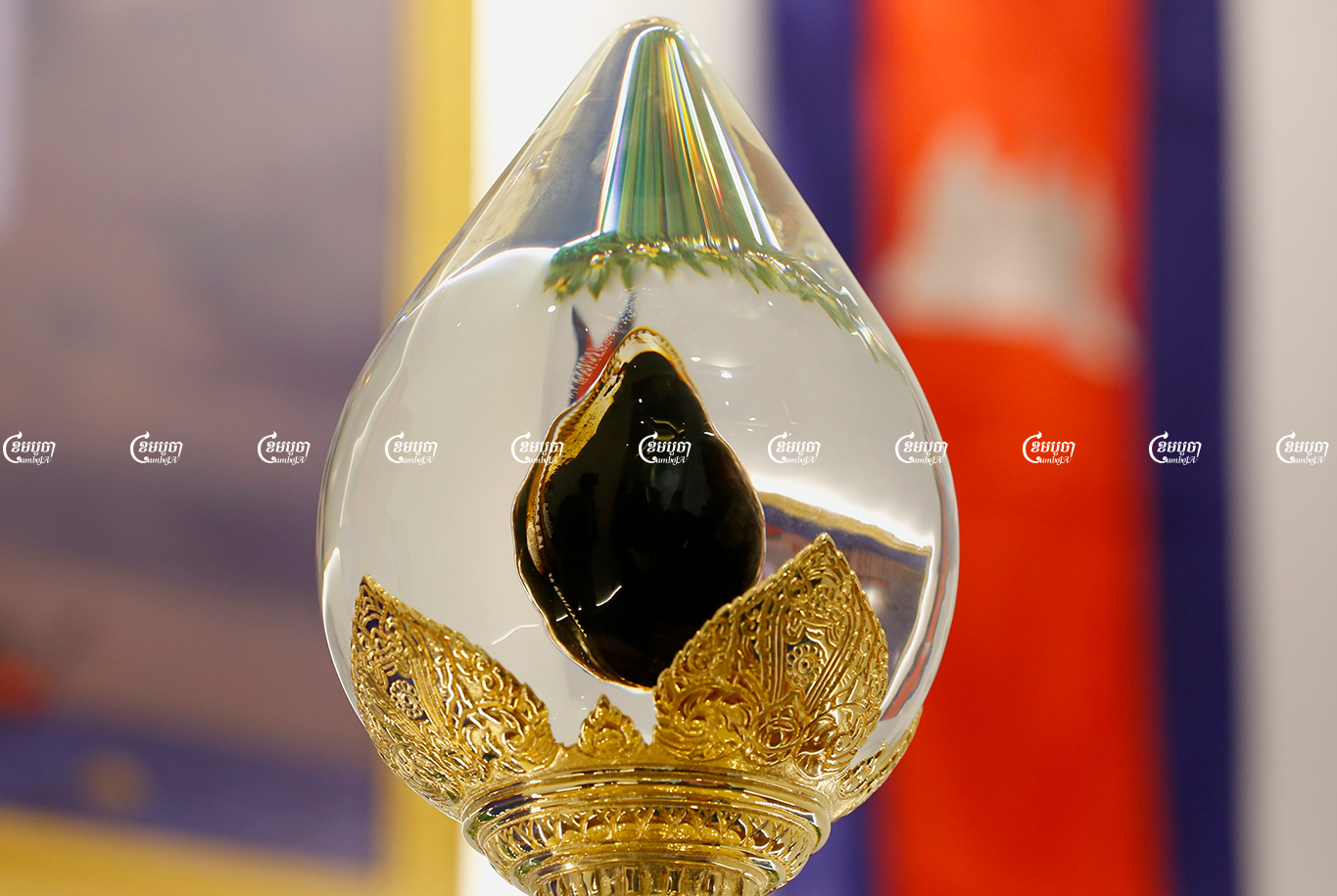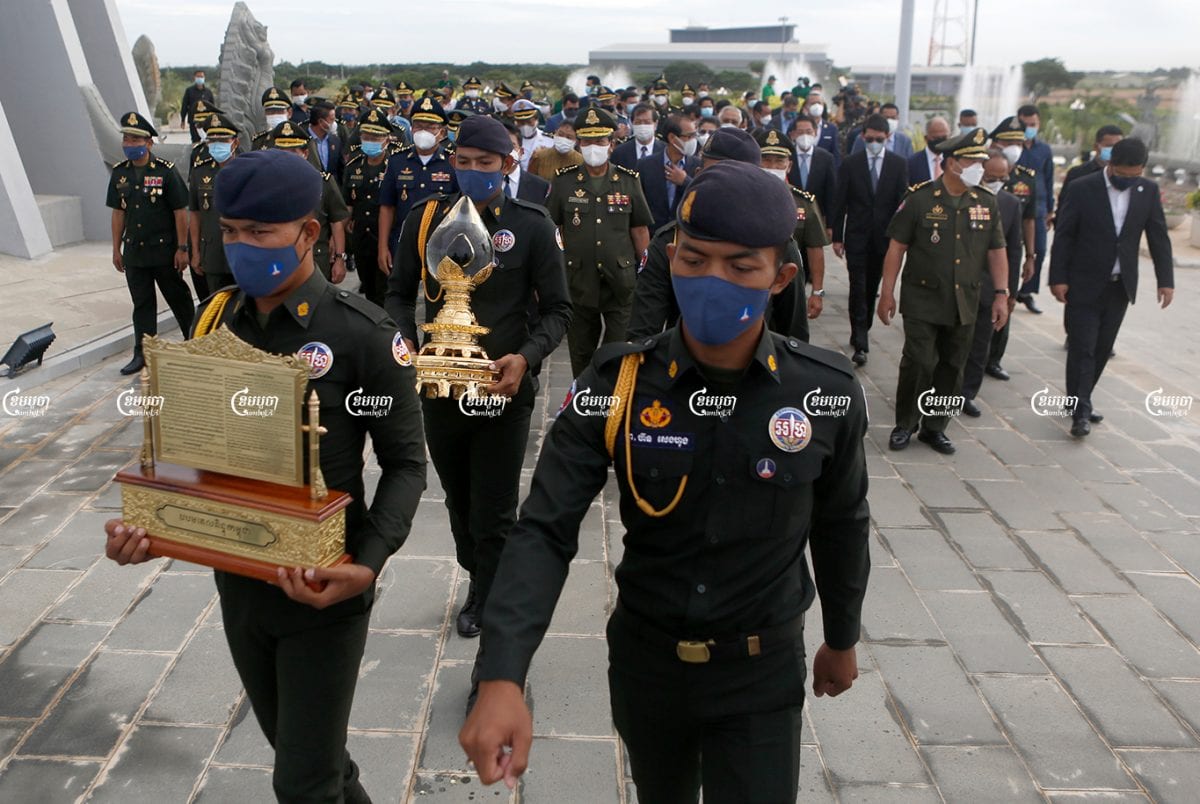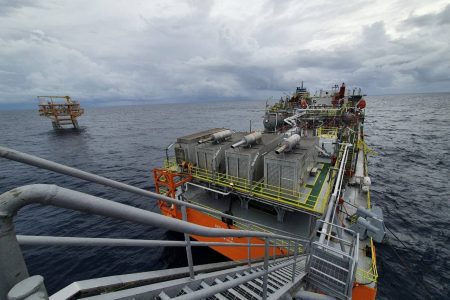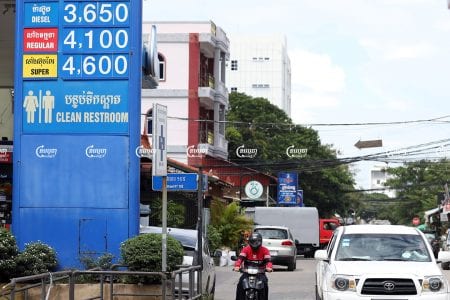Despite the government’s pride in Cambodia’s long-awaited oil production, the nation’s oil industry remains in limbo after developer KrisEnergy announced it was unable to pay its debts.
The government enshrined the Kingdom’s first drop of crude oil inside Phnom Penh’s Win Win Monument on Wednesday. Defense minister Tea Banh, who chaired the ceremony, said that the oil production was a blessing for the country.
“For those who raised concern over the “oil curse”, it’s not strange because they always say this — and the oil issue is no exception,” he said. “But they always obstruct all development and progress in the country, and do anything they can to damage the nation’s interests.”
Since Cambodia began extracting its first crude oil from the Gulf of Thailand on December 28, 2020, some observers have called for transparency in the handling of the project’s revenues in order to avoid the so-called “oil curse” that has riled other major producing nations.
However, after six months of extracting, the new-born sector is facing uncertainty as developer KrisEnergy winds up its operations following lower-than-expected output. The Singapore-based oil exploration firm announced on June 4 that it was unable to pay its debts and would proceed towards liquidation. The company has submitted a winding-up petition to the Grand Court of the Cayman Islands, where the company is registered.
In its announcement to shareholders, the company claimed that its liabilities exceed the value of its assets and that significantly lower cash flow from the Apsara Mini Phase 1A development meant that the company’s restructuring exercise was no longer viable. With no acceptable alternative restructuring option and a lack of fresh funds available to the company, the statement read, the company had no other choice but to proceed towards liquidation. In a press release on June 8, the company announced that trust corporation Madison Pacific Trust Limited would be appointing receivers over KrisEnergy’s shares and assets.
KrisEnergy investor relations and corporate communications vice-president Tanya Pang declined to comment, referring reporters to the company’s website.

Cheap Sour, director-general of petroleum at the Ministry of Mines and Energy (MME), said that Cambodia is still waiting to see if the industry will develop smoothly.
“We don’t know what will happen because we are waiting to see the court’s decision, if they will hand over the company’s assets to any creditors who would continue the operation in Cambodia,” he said.
However, he said the company is still extracting oil as normal.
“As the government, we are only looking at conditions in the agreement ,” he said. “And so far, the company has complied with all the criteria for its operations.”
KrisEnergy signed an agreement with the government in 2017 to develop the 3,083-sq-km “Block A” after buying Chevron Corp’s operating interest in the block for $65 million in 2014 following years of false starts for Cambodia’s nascent oil sector. The company holds a 95 percent stake in the project, with the government holding the remaining five percent.
The company said that oil production was expected to reach a peak rate of approximately 7,500 barrels of oil a day once the drilling program was completed in mid-February 2021. But the output has been less than half of its forecast, with the gross production rate at the Apsara field remaining at just more than 2,400 barrels per day.
Economists have said that the current production is too small for the national revenue even if the field is fully operational. But Hong Vannak, a business researcher at the Royal Academy of Cambodia, said that more oil and gas will be found over the Overlapping Claims Area with Thailand.
“In the overall economic view, any obstruction of oil production would not significantly affect economic development because the revenue expected from oil is just a small piece compared to the existing industry such as the tourism, agriculture and garment sectors that generate billions of dollars for the economy,” he said.
Vannak told CamboJA that he still believes operations will continue despite the company’s bankruptcy, saying that the government will look for ways to continue extracting oil.












